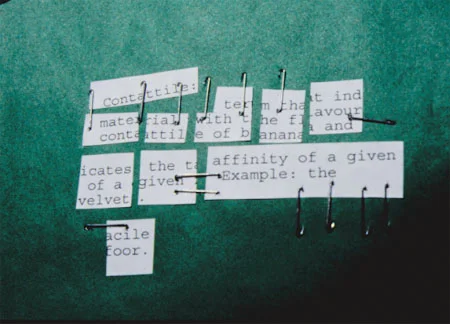For Immediate Release
Media Contact: Bryan Markovitz, 503 890 2993, bryan@liminalgroup.org
Portland, Ore.—On February 21 and 22, Liminal Performance Group will present minimal at liminal, a live performance of works representing the late 20th century genre of American Minimal Music. Conducted by Liminal sound director John Berendzen, minimal at liminal will feature more than a dozen Portland musicians including composer/performer Michael Stirling, upright bassist Jonas Tauber, saxophonist John Gross, Boca Marimba?s Mark Burdon and bass clarinetist Chad Hensel.
minimal at liminal will christen Liminal’s versatile 4,000 square foot performance space in Chinatown/Old Town. It is the first in a series of genre-crossing events/parties hosted by Liminal. Upcoming events include a March revival of performance works made famous during the Fluxus anti-art movement (by artists such as George Brecht, Nam June Paik and Yoko Ono). In April, Liminal will present its long-awaited new work, Three Plays, Five Lives, and a May concert will feature new compositions by Portland musicians.
What is Minimal Music?
American Minimal Music, or “repetitive music,” frequently refers to the compositions of La Monte Young, Terry Riley, Steve Reich and Philip Glass, who all began their careers in the early 1960s. minimal music focuses on the audible transformation of small musical phrases through repetition and the execution of processes determined by the composer. All minimal music lacks narrative structure. The music discards traditional harmonic schemes of tension and relaxation, and formal structures of cause and effect. Thus, the listener must discard regular listening habits if one is to experience the ecstatic effect of the music.
Minimal music is inherently performative. It is about the process of experiencing sounds as they transform in the moment. The task of the minimal composer and the performers is not to lead the audience to a planned catharsis, but to arrange a system where catharsis may spontaneously occur. It is like listening to falling rain in a quiet house—you can hear the pulse of a million drops of water hitting the roof, or you can isolate the sound of a single drop hitting a window. minimal music allows us to hear the parts and the whole, separately and together. “Those who loved minimalism the first time around,” says Berendzen, “will love it again and again and again and again and again and again at Liminal. Those who hated it have a second chance to see the light. Those who have never heard of it should just show up.”
minimal at liminal
Liminal space, 403 NW Fifth Avenue at Flanders
February 21 and 22, 8:30 PM
Tickets: $15, general seating
For reservations or information: 503 890 2993, www.liminalgroup.org
The performance will include:
john cage (1912-1992) may be the godfather of minimalism. Though never directly associated with the genre, his reduction of music down to melody only, and of melody down to its repetitive constituents, qualifies many of his prepared piano works as proto-minimalist. Such is the case in Music for Marcel Duchamp. And it really can’t get much more minimal than 4′33″, which Liminal will perform with special instrumentation.
la monte young (1935-) sustains extremely reduced sound material to penetrate the inner essence of the sound. Composition 1960 No. 7 consists of two notes “to be held for a very long time.” X for Henry Flynt prescribes a heavy sound repeated uniformly, regularly and for a long time. The work differs from the music of other repetitive composers in repeating a single sound rather than a succession of different sounds.
terry riley (1935-) was strongly influenced by jazz, tape loop experiments and Hindustani music when he began composing repetitive music. In 1964, Riley composed In C, which is generally considered the benchmark work of American Minimal music. For this work, Riley evolved his theory of “pattern fields”, in which identical musical phrases are overlapped as a kind of hyper-canon. In C is performed by an ensemble of musicians playing any combination of desired instruments. The score consists of 53 different figures that all performers play in order. Following a continuous pulse, performers play these figures at different times and repeat them at their own discretion to create a highly structured, yet improvisational performance.
steve reich (1936-) also started by using tape and other electronics as a medium. Fascinated by the phasing effect of two reel-to-reel machines playing at slightly different speeds, Reich was moved to arrange similar “phase shifts” for electronic instruments. He eventually abandoned his attempts at phase-shifting via electronics, but his piece Pendulum Music from 1968 survives as a lively representative of this transitional period. In this piece, three or more microphones, fed through amplifier and loudspeaker, are suspended from the ceiling at the same height. The microphones rest exactly above the loudspeakers so that feedback will be produced when they swing above the speaker. At the beginning of the performance, the performers draw the microphones towards them and simultaneously release them into free swing to produce a series of feedback pulses.
philip glass (1937-) based early works on repetition of musical figures through his characteristic additive technique. Glass was influenced by Indian music when he started creating musical phrases by building them up over time, rather than breaking them apart. In 1968, Glass composed One + One, a simple piece for amplified tabletop, where a performer rapidly taps out two repeated rhythmic cells in a regular arithmetic progression. Glass’ additive method dominated his compositions until his interest shifted to harmony in the mid 1970’s.
liminal (1997-) is a Portland-based ensemble of artists producing performance and media works. Liminal has produced eight original performances, and most recently revived Kurt Weill and Bertolt Brecht’s epic cabaret opera, The Seven Deadly Sins, with sold-out shows at Panorama nightclub. Liminal’s new work, Three plays, Five Lives, will open April 17. For more information, visit Liminal online at www.liminalgroup.org.
###
